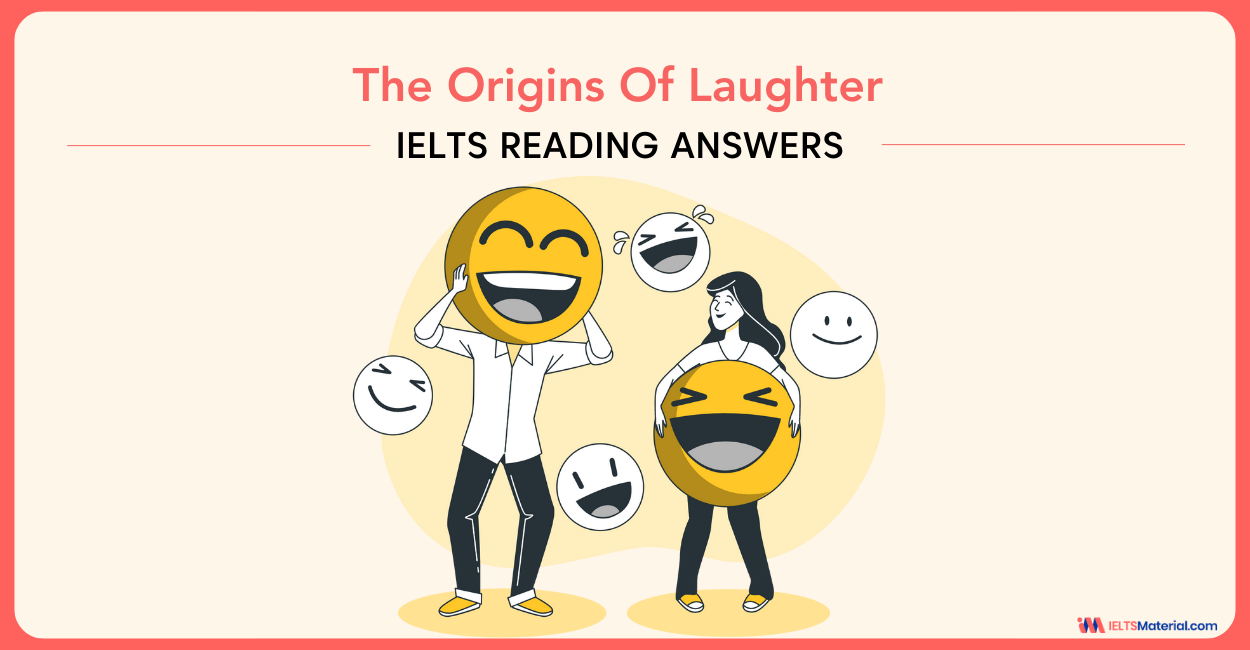Poverty and Health Reading Answers

Limited-Time Offer : Access a FREE 10-Day IELTS Study Plan!
A The concept of health holds different meanings for different people and groups. These meanings of health have also changed over time. This change is no more evident than in Western society today when notions of health and health promotion are being challenged and expanded in new ways.
For much of recent Western history, health has been viewed in the physical sense only. That is, good health has been connected to the smooth mechanical operation of the body, while ill health has been attributed to a breakdown in this machine.
B Health in this sense has been defined as the absence of disease or illness and is seen in medical terms. According to this view, creating health for people means providing medical care to treat or prevent disease and illness. During this period, there was an emphasis on providing clean water, improved sanitation, and housing.
C In the late 1940s, the World Health Organization challenged this physically and medically oriented view of health. They stated that ‘health is a complete state of physical, mental and social well-being and is not merely the absence of disease’ (WHO, 1946). Health and the person were seen more holistically (mind/body/spirit) and not just in physical terms.
D The 1970s was a time of focusing on the prevention of disease and illness by emphasizing the importance of the lifestyle and behavior of the individual. Specific behaviors which were seen to increase the risk of diseases, such as smoking, lack of fitness, and unhealthy eating habits, were targeted.
Creating health meant providing not only medical health care but health promotion programs and policies which would help people maintain healthy behaviors and lifestyles. While this individualistic healthy lifestyles approach to health worked for some (the wealthy members of society), people experiencing poverty, unemployment, underemployment, or little control over the conditions of their daily lives benefited little from this approach.
This was large because both the healthy lifestyles approach and the medical approach to health largely ignored the social and environmental conditions affecting the health of people.
E During the 1980s and 1990s, there has been a growing swing away from seeing lifestyle risks as the root cause of poor health. While lifestyle factors still remain important, health is being viewed also in terms of the social, economic, and environmental contexts in which people live.
This broad approach to health is called the socio-ecological view of health. The broad socio-ecological view of health was endorsed at the first International Conference of Health Promotion held in 1986, Ottawa, Canada, where people from 38 countries agreed and declared that:
The fundamental conditions and resources for health are peace, shelter, education, food, a viable income, a stable ecosystem, sustainable resources, social justice, and equity. Improvement in health requires a secure foundation in these basic requirements. (WHO, 1986)
F It is clear from this statement that the creation of health is about much more than encouraging healthy individual behaviours and lifestyles and providing appropriate medical care. Therefore, the creation of health must include addressing issues such as poverty, pollution, urbanization, natural resource depletion, social alienation, and poor working conditions.
The social, economic, and environmental contexts which contribute to the creation of health do not operate separately or independently of each other. Rather, they are interacting and interdependent, and it is the complex interrelationships between them that determine the conditions that promote health.
A broad socio-ecological view of health suggests that the promotion of health must include a strong social, economic and environmental focus.
G At the Ottawa Conference in 1986, a charter was developed which outlined new directions for health promotion based on the socio-ecological view of health. This charter, known as the Ottawa Charter for Health Promotion, remains the backbone of health action today. In exploring the scope of health promotion it states that:
Good health is a major resource for social, economic, and personal development and an important dimension of quality of life. Political, economic, social, cultural, environmental, behavioural, and biological factors can all favour health or be harmful to it. (WHO, 1986)
The Ottawa Charter brings practical meaning and action to this broad notion of health promotion. It presents fundamental strategies and approaches in achieving health for all. The overall philosophy of health promotion which guides these fundamental strategies and approaches is one of ‘enabling people to increase control over and to improve their health (WHO, 1986).
Question 1-5
Complete the sentences below.
Choose NO MORE THAN TWO WORDS from the text for each answer.
Write your answers in boxes 1–5 on your answer sheet.
1 The ____________ was a time of focusing on the prevention of disease and illness by emphasizing the importance of the lifestyle.
2 They stated that ‘health is a complete state of _______________, mental and social well-being.
3 ____________ is a major resource for social, economic, and personal development and an important dimension of quality of life.
4 Good health has been connected to the smooth _____________ of the body.
5 Improvement in ____________ requires a secure foundation in the basic requirements.
Question 6-10
Do the following statements agree with the claims of the writer in the Reading Passage?
In boxes 6-10 on your answer sheet, write:
TRUE- if the statement agrees with the claims of the writer
FALSE- if the statement contradicts the claims of the writer
NOT GIVEN – if it is impossible to say what the writer thinks about this
6 During the 1980s and 1990s, there has been a growing swing away from seeing lifestyle risks.
7 The Ottawa Charter brings practical meaning and action to this broad notion of health promotion.
8 The meanings of health have changed over time.
9 At the Ottawa Conference in 2014, a charter was developed.
10 In the late 1940s, the World Women Organization challenged this physically and medically oriented view of health.
Reading Answers
1 Answer: 1970s
Question type: Sentence Completion
Answer location: Paragraph D, line 1 – line 2
Answer explanation: The given lines of Paragraph D says that “The 1970s was a time of focusing on the prevention of disease and illness by emphasizing the importance of the lifestyle and behavior of the individual.” It is clear that during the 1970s, there was a focus on the prevention of disease and illness by emphasizing the importance of the lifestyle and individual behaviour. Hence, the answer is ‘1970s’.
2 Answer: physical
Question type: Sentence Completion
Answer location: Paragraph C, line 2- line 3
Answer explanation: The mentioned lines state that “They stated that ‘health is a complete state of physical, mental and social well-being and is not merely the absence of disease’ (WHO, 1946).” This points to the fact that in the late 1940s, WHO stated that health is a complete state of physical, mental and social well-being. Hence, the answer is ‘physical’.
3 Answer: good health
Question type: Sentence Completion
Answer location: Paragraph G, line 5 – line 6
Answer explanation: In Paragraph G, the writer said that “Good health is a major resource for social, economic, and personal development and an important dimension of quality of life.” As the keywords in the statement match with the information in the exact and the only word missing is good health, the answer is ‘good health’.
4 Answer: mechanical operation
Question type: Sentence Completion
Answer location: Paragraph A, line 6
Answer explanation: The sixth line of Paragraph A claims that “…good health has been connected to the smooth mechanical operation of the body…”. As it is clear that good health has been connected to the smooth mechanical operation of the body, the answer is ‘mechanical operation’.
5 Answer: health
Question type: Sentence Completion
Answer location: Paragraph E, line 9
Answer explanation: The mentioned line of Paragraph E says that “Improvement in health requires a secure foundation in these basic requirements.”. As it is clear that improvement in health requires a secure foundation in these basic requirements, the answer is ‘health’.
6 Answer: True
Question type: True/False/Not Given
Answer location: Paragraph E, line 1
Answer explanation: The quoted line in Paragraph E says that “During the 1980s and 1990s, there has been a growing swing away from seeing lifestyle risks as the root cause of poor health.” As the statement agrees with the claims of the writer, the answer is True.
7 Answer: True
Question type: True/False/Not Given
Answer location: Paragraph C, line 8 – line 9
Answer explanation: The lines of Paragraph C says that “The Ottawa Charter brings practical meaning and action to this broad notion of health promotion.” As the statement agrees with the claims of the writer, the answer is True.
8 Answer: True
Question type: True/False/Not Given
Answer location: Paragraph A, line 1 – line 2
Answer explanation: The specified lines say that “These meanings of health have also changed over time.” As the statement agrees with the claims of the writer, the answer is True.
9 Answer: False
Question type: True/False/Not Given
Answer location: Paragraph G, line 1 – line 2
Answer explanation: The mentioned line of Paragraph G says that “At the Ottawa Conference in 1986, a charter was developed which outlined new directions for health promotion based on the socio-ecological view of health.”. It is clear from the statement that the Ottawa Conference was held in 1986 and not 2014, the answer is False.
10 Answer: True
Question type: True/False/Not Given
Answer location: Paragraph C, line 1 – line 2
Answer explanation: The provided lines says that “In the late 1940s, the World Health Organization challenged this physically and medically oriented view of health.”. As the statement agrees with the claims of the writer, the answer is True.
Practice IELTS Reading based on question types

Start Preparing for IELTS: Get Your 10-Day Study Plan Today!
Explore other IELTS Articles

Janice Thompson

Zuhana
Recent Articles

Kasturika Samanta

Kasturika Samanta

Janice Thompson







Post your Comments